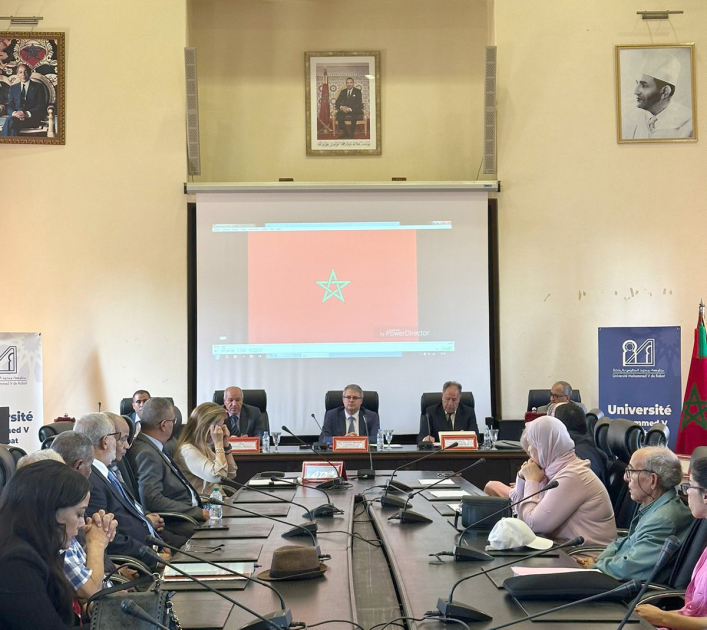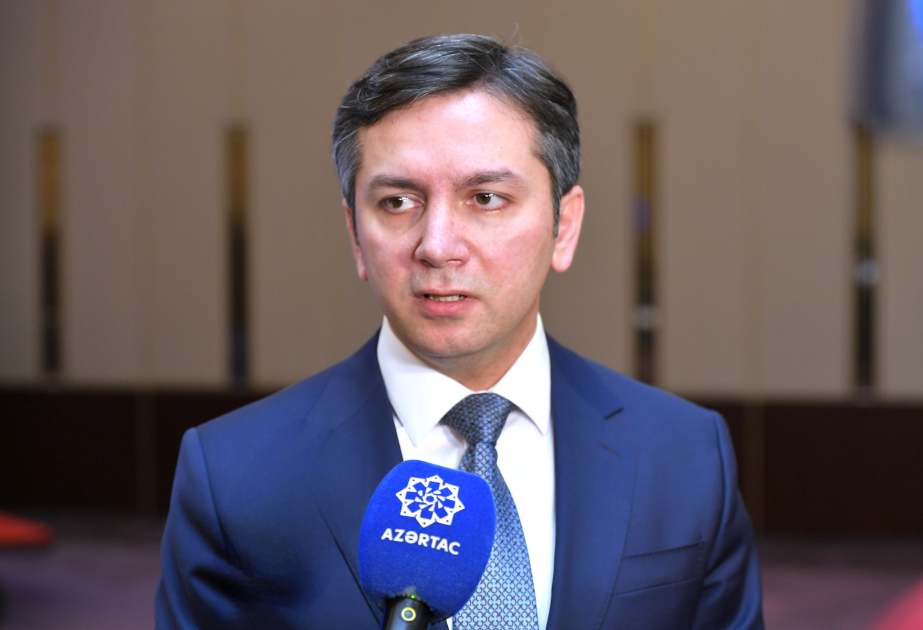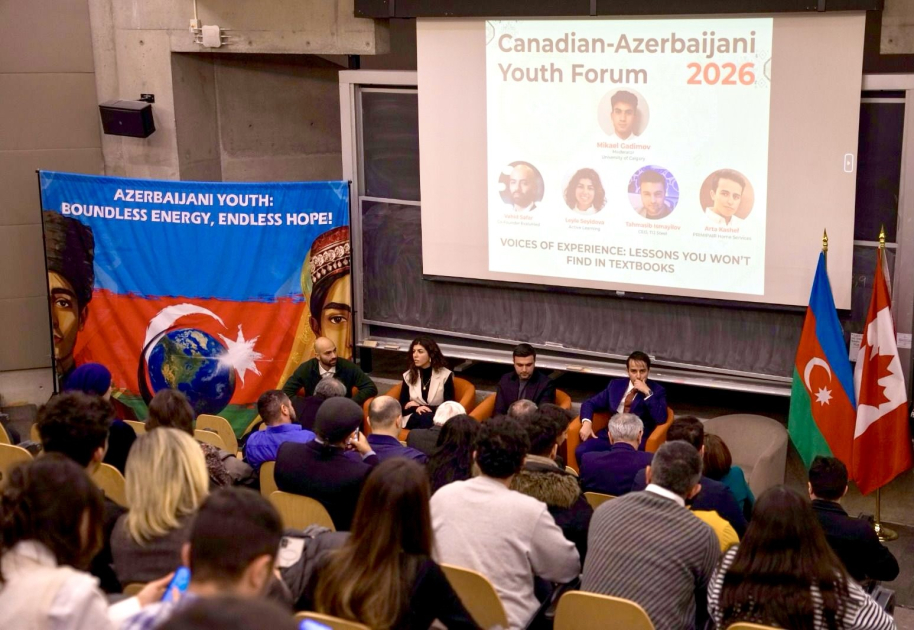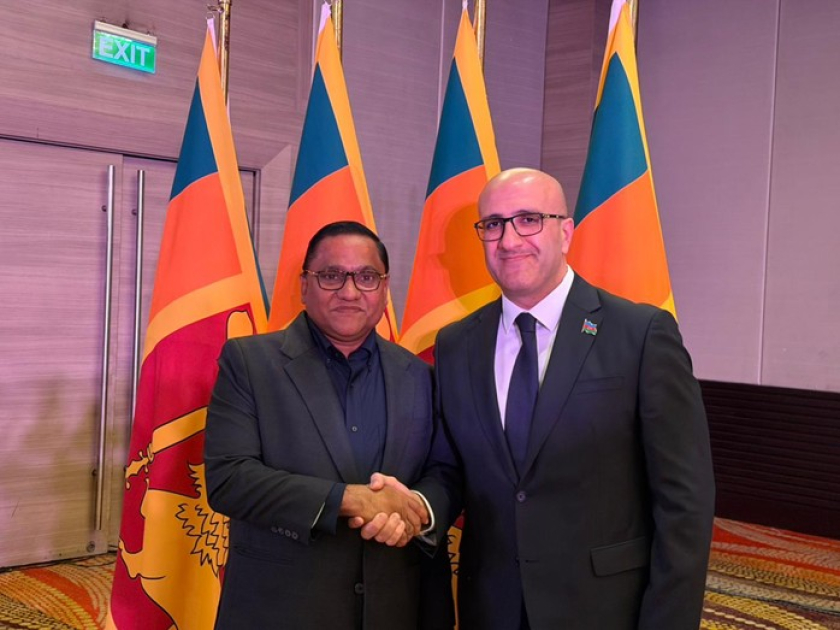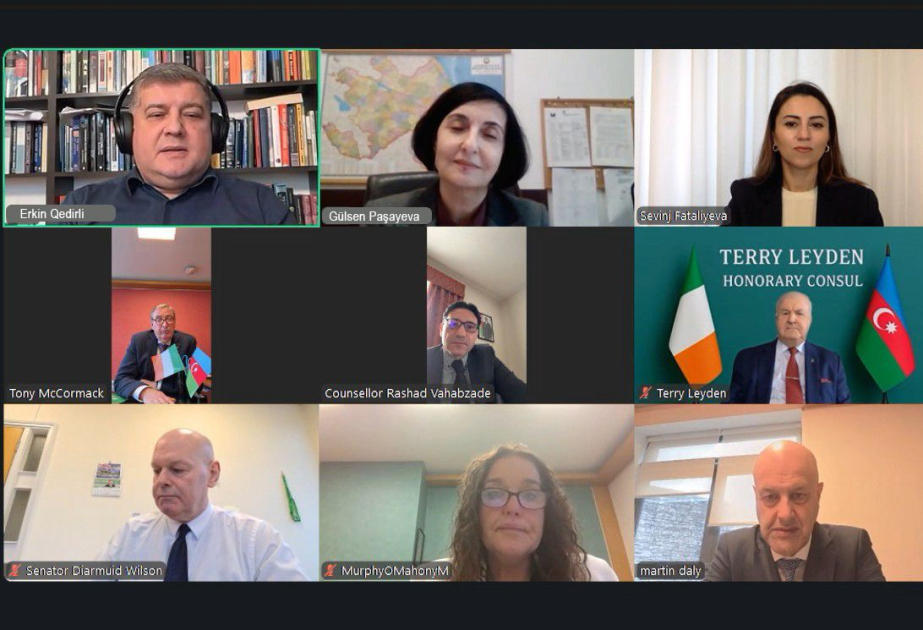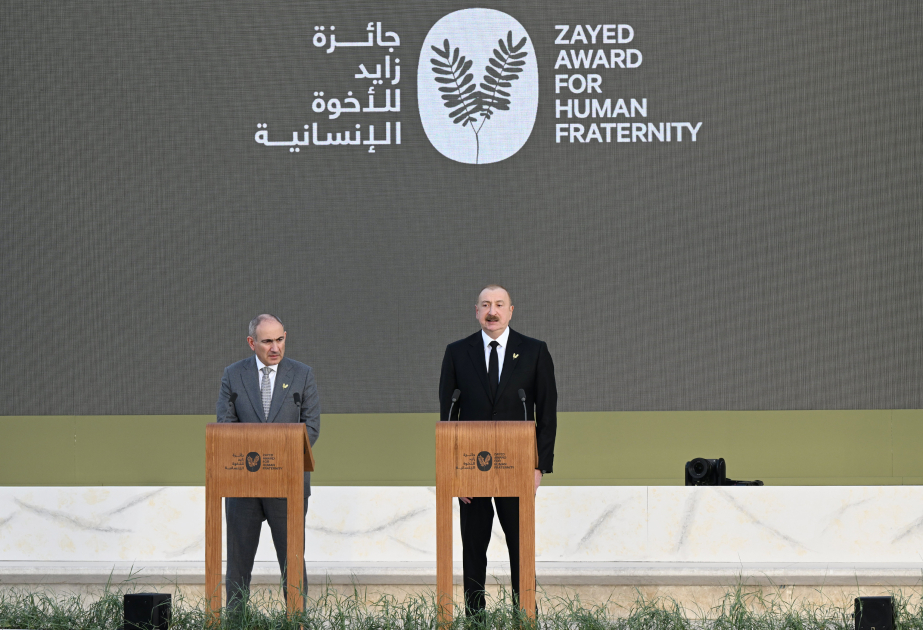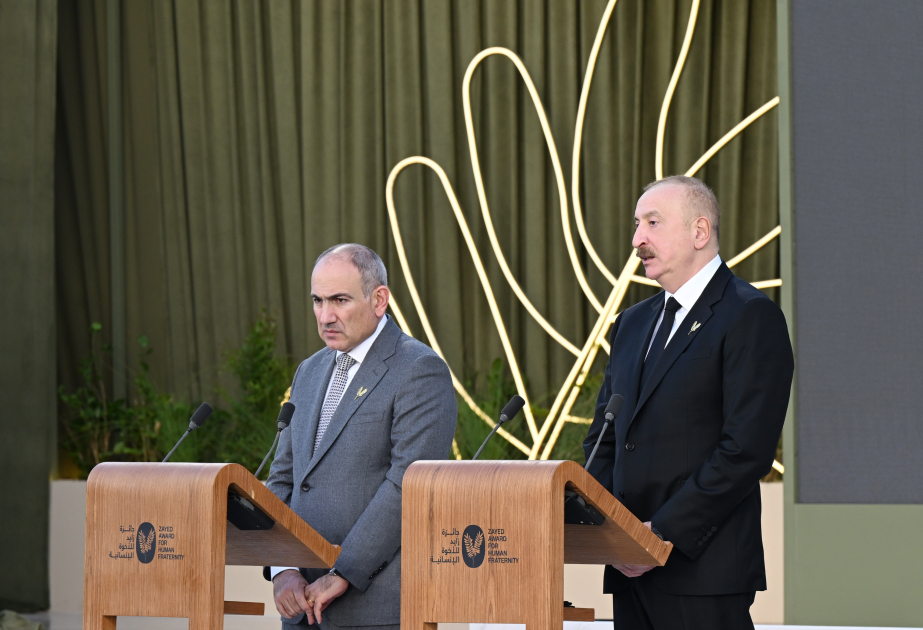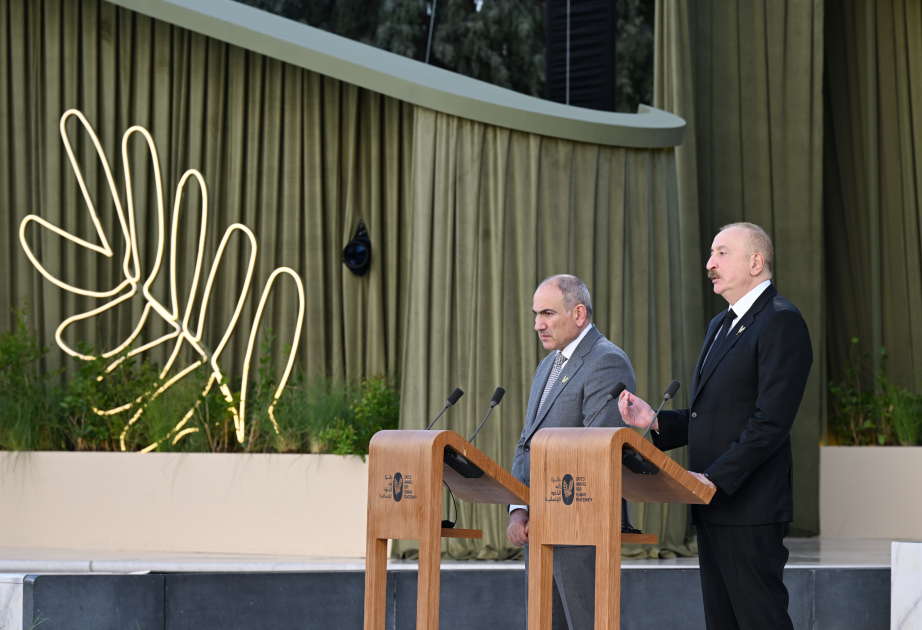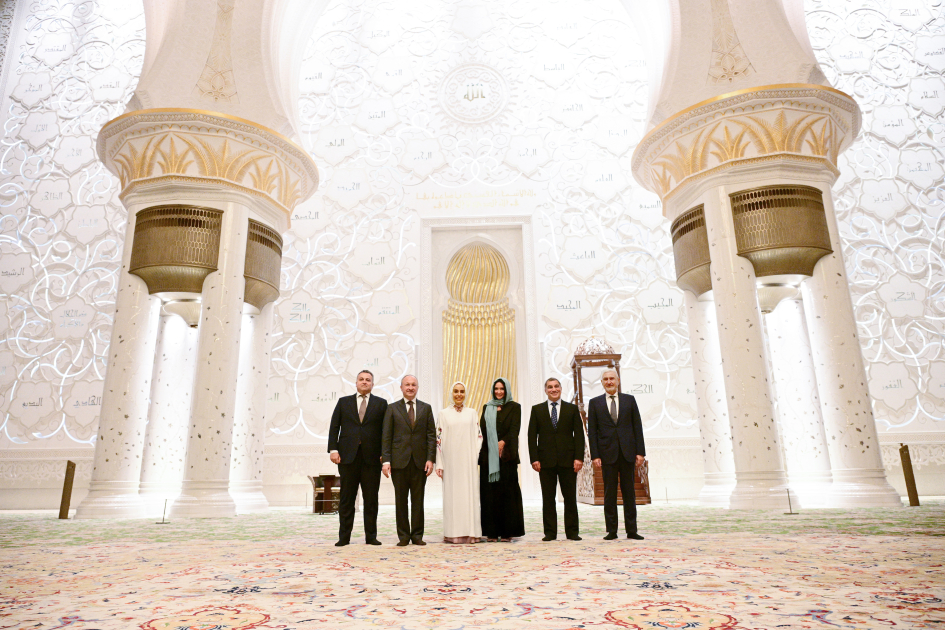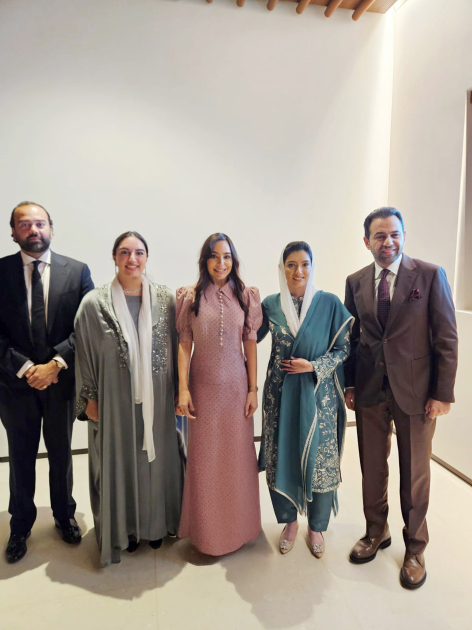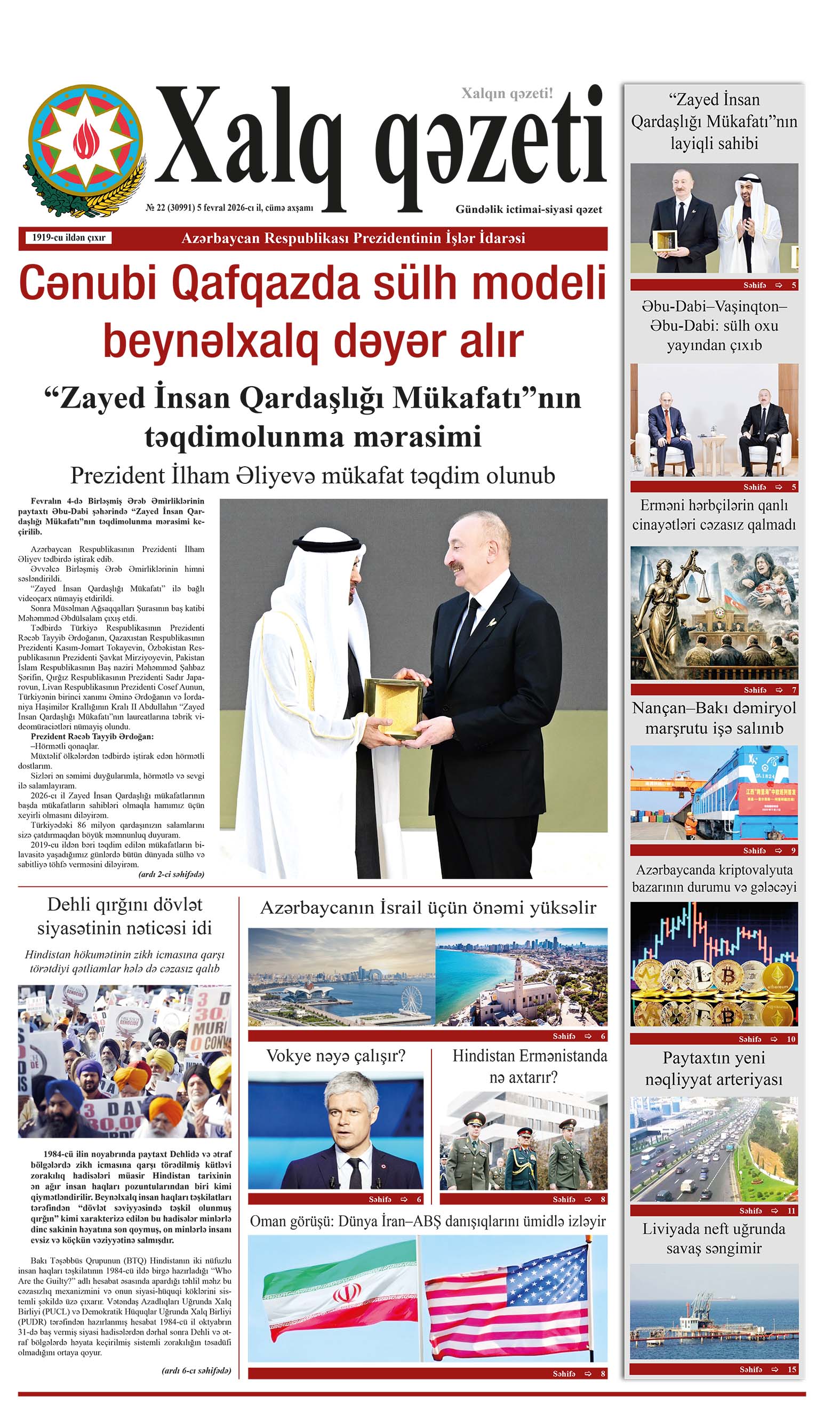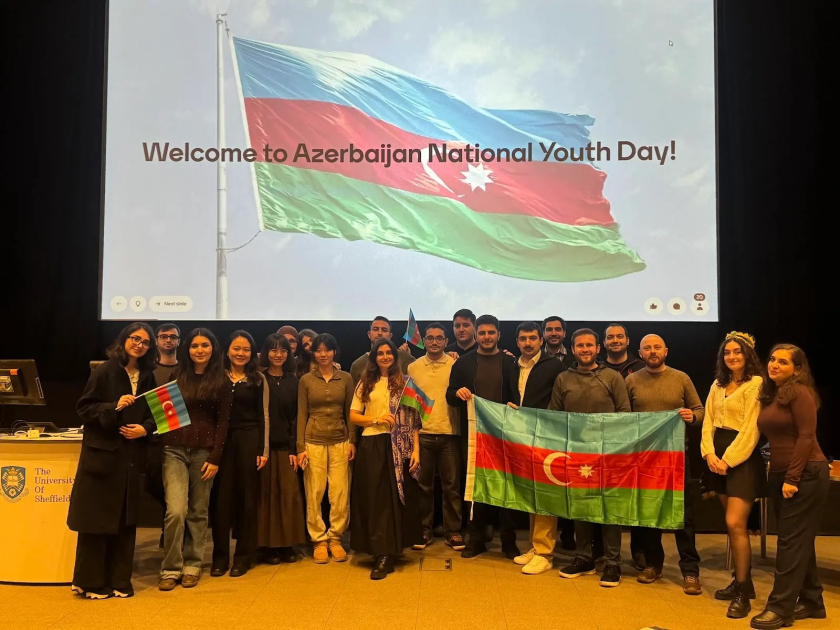Rabat hosts conference on "Moroccan-Azerbaijani relations, history and challenges"
The Embassy of the Republic of Azerbaijan in the Kingdom of Morocco, in partnership with the Moroccan-Azerbaijani Friendship Association, and in cooperation with the Mohammed V University of Rabat, organized an intellectual symposium entitled: "Moroccan-Azerbaijani Relations, History and Challenges".
AZERTAC’s correspondent reported that the symposium was distinguished by presentations on bilateral relations between Morocco and Azerbaijan in various fields of diplomatic, economic and commercial cooperation.
Dr. Jassem Salah, a lecturer and researcher at Ibn Zohr University and the multidisciplinary university of Taroudant, confirmed that since the independence of Azerbaijan in 1992, the two countries have established strong political relations, considering the cancellation of the visa between Morocco and Azerbaijan as an excellent opportunity to intensify economic exchanges, stimulate foreign direct investments and encourage tourism, which facilitates the movement of investors and entrepreneurs and opens the way to new cooperation in sectors such as agriculture, handicrafts and information technology.
To take advantage of these opportunities, several recommendations have been made, such as the creation of a joint committee to supervise economic cooperation, the development of virtual platforms to facilitate trade and the exploration of new sectors such as information technology, education and renewable energy.
Jassim Salah also confirmed that the cancellation of the visa represents the beginning of a new era in the bilateral relations between Morocco and Azerbaijan, and opens promising horizons for the development of economic and commercial exchanges. This cooperation could become an example of economic partnership based on mutual trust and shared benefits, thus offering a prosperous future to both countries.
For his part, the Ambassador of the Republic of Azerbaijan to the Kingdom of Morocco, Nazim Samadov, delivered a comprehensive intervention on the nature of the distinguished diplomatic relations that unite the two countries, noting the very important steps have been taken within the framework of programs that have been adopted in order to achieve common interests, through cooperation in various economic, political and cultural fields.
The ambassador also confirmed that after the mutual cancellation of the visa, there are future projects of programs aimed strengthening the exchange of tourist visits between the citizens of the two countries, by continuing to facilitate travel via a direct air line, in addition to improving maritime transport, which will inevitably contribute to the development of trade and economic cooperation.
Nazim Samadov answered all the questions from the audience, including researchers, academic specialists and media professionals, in order to deepen knowledge and further enrich the intellectual space of the conference, which managed to bring added value to Moroccan-Azerbaijani relations.
In his remarks, initially focused on the nature of the distinguished historical relations between Azerbaijan and Morocco, Muhammad Fakiri, President of the Azerbaijan-Morocco Friendship Association, highlighted the cultural relations developed between the two countries, strengthened by the exchange of cultural visits, joint events and academic cooperation agreements, where a scientific memorandum was signed, allowing the exchange of students and researchers between Moroccan and Azerbaijani universities.
On the occasion of the fact that the Azerbaijani capital, Baku, will host the "COP29" conference in the coming month of November, a presentation was made on this important international step, where Dr. Radwan Hamdi, economic expert, precised that it will be decisive and effective in continuing and activating previous discussions, especially in terms of financing and international cooperation.
On the same topic related to the COP29 conference, journalist Hassan Al-Yousifi addressed the issue of the importance and role of the media in supporting climate change programs, as scientific media and climate journalism play a decisive role in simplifying information for the general public, promoting public debates and shaping public opinion, adding that the media is not limited to reporting the news, but contributes to shaping political decisions, increasing popular pressure and influencing decision-makers.
Al-Yousifi emphasized that despite the important role of the media, they face many challenges, the most important of which are the complexity of scientific information, the pressures of economic and political interests, as well as false and misleading information.
At the end of the symposium, everyone agreed the need to organize more seminars, activities and intellectual events of this type that will have a positive impact in reducing the distance between the two countries and the Moroccan and Azerbaijani societies, and providing an opportunity for young people and children on both sides to learn more about each other's history and civilization.
At the end, the participants were pleased to take a group photo documenting an intellectual and humanitarian meeting, in addition to visiting the photo exhibition, which reflects the stages of the history of diplomatic, cultural and social relations between Azerbaijan and Morocco.


